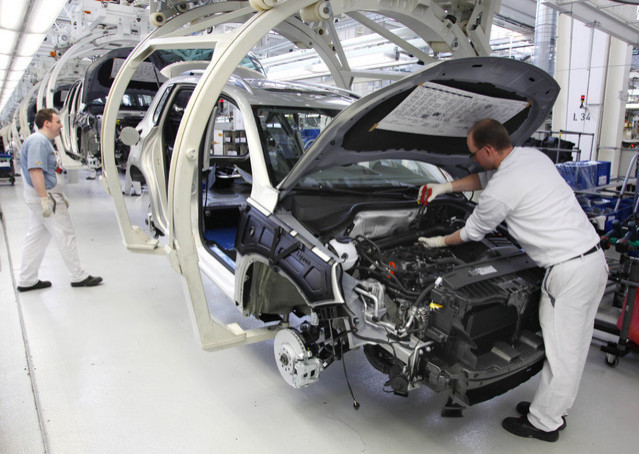UK Industrial Production, Trade Data Disappoint; German Industrial Production Records Surprise Expansion In August

The UK’s trade deficit narrowed less than estimated and industrial production unexpectedly contracted the most since 2012, in contrast to Germany’s industrial production, which expanded significantly in August, data released by the countries' respective governments showed on Wednesday.
UK's industrial production dropped 1.1 percent in August, after gaining 0.1 percent in the previous month, raising some concerns over the strength of the economic recovery in the country. Factory output fell by 1.2 percent in the month. Analysts had expected the country to post a 0.4 percent increase in both industrial production and factory output.
“A surprise fall in industrial production in August is likely to have been a temporary blip in an otherwise strengthening manufacturing economy,” Chris Williamson, chief economist at Markit, wrote in a research note. “The underlying trend in production growth is in fact still the strongest since mid-2010, and we expect a continual improvement in coming months,” he added.
UK’s deficit on trade in goods and services narrowed at a slower-than-expected rate to £9.63 billion ($15.45 billion) in August, compared with an upwardly revised £9.94 billion recorded in the previous month, and against analysts’ projection of a deficit of 9 billion euros, data released by the Office for National Statistics on Wednesday showed.
Exports fell 1.2 percent in the three months to August, registering the first three-month fall since December.
“One of the undisputed big disappointments remains the UK’s lackluster export performance, especially in the face of the pound’s 20 percent depreciation since the financial crisis struck. However, with the euro zone – our major trading partner – pulling out of recession, this picture is starting to change, with exports of goods to the EU up 0.7% in the three months to August,” Williamson said.
Germany, on the other hand, posted a surprise expansion of 1.4 percent in industrial production in August, up from a contraction of 1.1 percent in the previous month, suggesting that Europe’s largest economy might be back on track for a sustained recovery. Analysts polled by Bloomberg had expected an increase of 1 percent.
“In the short term, the prospects for German industry remain positive,” Carsten Brzeski, senior economist at ING Groep NV in Brussels, told Bloomberg News. “Industrial production should further benefit from the recent inventory reduction and the increase in new orders earlier this year. In the longer term, however, the industry needs more fuel to return to full strength.”
© Copyright IBTimes 2024. All rights reserved.





















